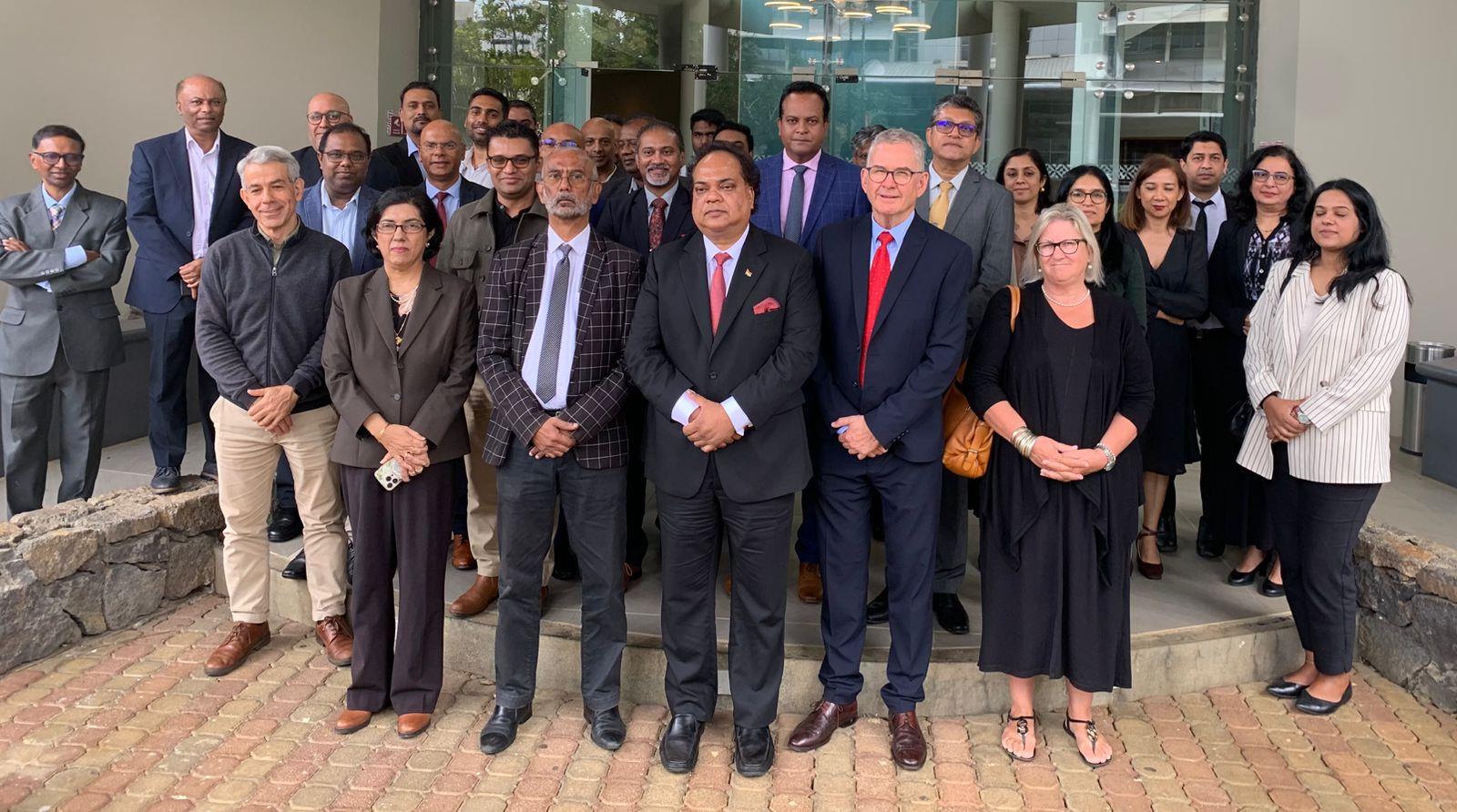
Mauritius has taken a significant step towards shaping the future of its higher education sector with the development of a National Higher Education Strategy (2025-2035). The initiative is a collaborative project between the Higher Education Commission (HEC) of Mauritius and the Commonwealth of Learning (COL). According to Dr Jako Olivier, Adviser: Higher Education, “It is a privilege for COL to be involved in this systematic and inclusive process towards developing the National Higher Education Strategy for Mauritius”.
The new strategy builds on the momentum of the June 2025 Higher Education Summit, where the Ministry of Tertiary Education, Science and Research launched a national consultation to strengthen the sector in alignment with the country’s social and economic objectives. The Summit convened stakeholders from across academia, industry, and government to identify priorities and chart a path for reform and innovation.
As part of the process, a two-day strategy workshop was held on 28–29 July 2025. Organised by the Ministry of Tertiary Education, Science and Research in collaboration with the HEC and COL, the workshop gathered around 40 participants representing public and private higher education institutions as well as industry leaders.
The Honourable Dr Kaviraj Sharma Sukon, Minister of Tertiary Education, Science and Research, attended both days of the workshop, providing strategic guidance, engaging with participants, and reaffirming the government’s commitment to building a modern, inclusive, and responsive higher education system.
In his address, the Honourable Dr Kaviraj Sharma Sukon, Minister of Tertiary Education, Science and Research, stated:
“Today marks a watershed moment in the history of our beloved Republic of Mauritius. As we stand at the crossroads of tradition and transformation, I am honoured to present our nation’s first comprehensive National Higher Education Strategy—a bold declaration of our intent to revolutionise education and secure our place as a global leader amongst island nations.
This is not merely a policy document; it is our covenant with future generations. It is our promise that every Mauritian, regardless of background or circumstance, will have access to world-class education that ignites their potential and fuels our nation’s ascent to unprecedented heights.
I extend my deepest gratitude to the Commonwealth of Learning, whose unwavering support has been instrumental in bringing this vision to fruition. To Professor Paul Prinsloo, whose expertise has guided us through this transformative journey—your dedication has helped craft a strategy that truly embodies the spirit and aspirations of our rainbow nation. For too long, Mauritius has operated without a comprehensive roadmap for higher education. Today, we correct this course decisively. This strategy will catapult our nation into the ranks of knowledge-based economies, transforming Mauritius into the educational powerhouse of the Indian Ocean region.
This strategy will help our universities to become crucibles of innovation. Our graduates will emerge as global citizens and change-makers. Our research will address not only our national challenges but contribute solutions to the world’s most pressing concerns.
This strategy is our declaration that Mauritius refuses to be defined by our size—we shall be defined by our ambition, our excellence, and our unwavering commitment to human development.
The future starts today. The transformation begins now.”
Discussions during the workshop focused on co-developing strategic directions and priorities in key areas, including teaching and learning, digital transformation, research excellence, internationalisation, and industry engagement. Participants worked collaboratively to generate recommendations that will form the backbone of Mauritius’s forthcoming National Higher Education Strategy.
The strategy, expected to be finalised by the end of 2025, will serve as a comprehensive roadmap to guide planning, funding, and development in Mauritius’s higher education sector over the next decade. By doing so, the country aims to ensure that its higher education system remains agile, innovative, and responsive to both national imperatives and global trends.


